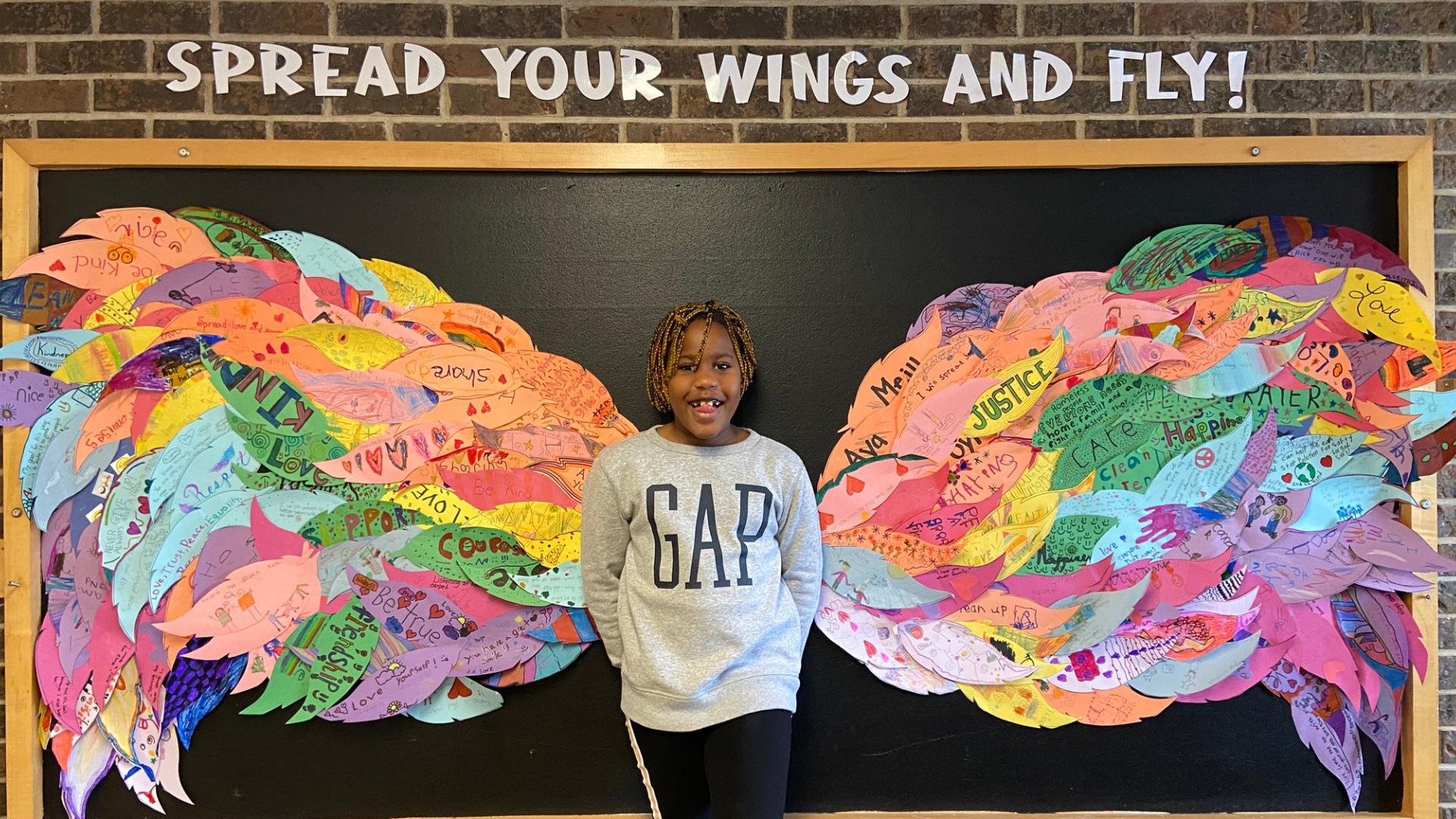Honouring the dignity of every person, we care for and support the well-being of all.
Our commitment to Be Well helped focus our actions on supporting our students’ and staff’s physical and mental wellness.
Continuing with our Mental Health Strategy
The mental well-being of our students and staff remains a critical factor in all we do. The pandemic affected us all differently, and recovery will also be different. With this in mind, we developed the OCSB Mental Health Strategy 2021-2024, setting the framework to support student and staff well-being during a crisis and in the future.
The 2021-2022 school year was the first full year of implementing the new strategy. Much of the work has been in promoting mental health and well-being by classroom teachers, resource teachers, guidance counsellors and inclusion teachers. The goal is to increase awareness, build capacity, and promote evidence-based approaches that enable students to flourish and have a strong sense of belonging in their school community. To better serve at-risk students, our Trustees approved funding to increase the number of mental health workers from 4 to 7. This change allowed over 22,000 students to participate in mental health presentations on top of individual and group interactions. We also prioritized adding staff to support our most vulnerable students, enabling us to serve 55% more students in 2021-22 (2871) than we had the previous year (1854).
Throughout the summer, our Special Education and Student Services department continued to support over 1000 selected students with special education needs or issues related to mental health and well-being. The goal was to help re-establish familiarity with the school environment or routines and facilitate a smooth transition back to the classroom setting.
Supporting Indigenous Students
Our Board is committed to improving our Indigenous students’ academic achievement and well-being. Doing so also means increasing every student’s knowledge and awareness of Indigenous histories, cultures, perspectives, and contributions.
As we continue to Reconciliation, we will implement initiatives that support the Truth and Reconciliation Commission’s Calls to Action. Our goal is to build stronger relationships with communities to be better informed and equipped to nurture student achievement and well-being for our First Nation, Métis, and Inuit students.
Our priorities in the 2021-2022 school year included continuing to work with Indigenous community partners, encouraging Indigenous self-identification among our student population, and consulting with the Indigenous Education Advisory Committee. Thanks to the support of our Trustees, we added two new staff: an Indigenous curriculum consultant and an Indigenous family support worker.
Other initiatives introduced in 2021-2022 included:
- All schools received seasonal Land Acknowledgement poster sets and Every Child Matters lawn signs
- Grade 4-6 educators received an Indigenous book and accompanying lessons to help educators feel more comfortable incorporating Indigenous education within their classrooms.
- Every school received funds to purchase items related to Indigenous culture for their school.
- We offered a four-part webinar series for staff and parents
- We augmented Indigenous-focused professional development and teacher support
- We developed an Indigenous Education Framework that will act as a blueprint for identifying and eliminating discriminatory practices, systemic barriers and biases towards Indigenous communities in our work.
Extending the Classroom to the Outdoors
OCSB schools embraced outdoor learning. A growing body of research suggests connecting to nature contributes to children’s mental, physical, emotional, and spiritual health and well-being. We used the Ministry of Education’s Outdoor Education Funds for outdoor school ground greening in keeping with the three pillars of wellness, equity, and environmental education. These funds allowed several schools to improve their outdoor initiatives. Some examples include enhanced pathways, outdoor classrooms, and peace gardens.
Promoting Environmental Awareness
The OCSB has always nurtured a culture of conservation and caring for the environment. Our schools have long been encouraged to participate in the EcoSchools program. Last year 15 of the 22 OCSB schools that applied for EcoSchools certification achieved gold or platinum levels.
During Earth Month, we focused on a different theme each week: Wildlife, Plants, Insects, and Pollinators; the Four Elements of Nature; and Clean Water. Our central staff offered several cross-curricular activities to educators at all grade levels. These included a daily art activity, coding lessons with an environmental theme, two environmental career panels, and several Livestream events focusing on Indigenous perspectives on the environment.
Many experiential learning activities also focused on the environment. Over the past few years, several of our educators have added vertical gardens to their classrooms to augment student learning. Nineteen vertical gardens were purchased last year, bringing the total number in the Board to seventy-five. Students work together to assemble the garden structures, start the seedlings, later transplant them, and tend to the daily responsibilities of caring for the plants and the tower. The hands-on aspect of constructing a classroom garden engages students and can be used at any grade level to help students connect to sections of the science curriculum. These gardens are a natural starting point for lessons about soil composition, plant parts and growth, the environment, and healthy eating.
